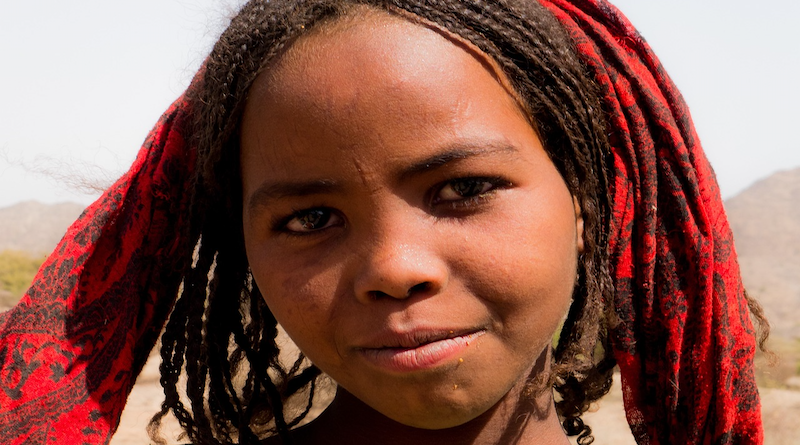For years now, the Horn of Africa States has been in a state of turmoil, instability, and conflicts compounded by climatic changes, man-made poverty, international interferences, and imported terror groups that have played havoc on the region. It is not settled yet and the ethno-based competition for power seems to be the main fuel for most of the troubles of the region which is exploited by those who take advantage of the region’s resources, which are enormous by any standard. These include among others the waters of the Nile Valley, the great savannah, and arable agricultural lands, the enormous maritime resources of the region, and indeed, the equally enormous sub-soil wealth of the region including oil and gas and other minerals, not counting the sufficiently large youthful population of the region.
We have been discussing the Horn of Africa States’ issues for quite a while now and it appears that we have laid a platform for continuing the discussions with respect to the region’s socio-economic and cultural development and hence the creation of a closer relationship among the region’s SEED countries. It is why we propose in this article the possibility of having the region’s universities and institutions of higher learning, research fellows, senior politicians, civil societies, and indeed, its governments review and help create a regional platform for creating and maintaining a functioning regional institution such as the “HAS” we propose.
We call for these discussions as the region truly needs a wake-up call to take advantage of its enormous resources instead of the malicious foreign parties that have so far succeeded in keeping the region occupied. The region can have stable governments instead of unstable governing regimes. It can have rapid economic growth instead of the weak economies it currently suffers from, and it can have peaceful cooperation of its various ethnicities instead of confrontations and unconstructive divisions.
There are stark choices to be made. Should the region and its countries be in the same traumatized, ethnically divided state or should the region be converted into a cooperating, developing, and economically integrated region? Should the region pursue peaceful development and resource exploitation, or should the region be engaged in fruitless pursuits of tribal/clan politics? At HAS, we propose the building of a cooperating and integrated regional block that serves the people of the region without antagonizing others, but defending its turf on solid grounds, be it socio-political and/or security-related.
We say that united we swim together and divided we sink. It is the togetherness that would be more beneficial for the states of the region than the current single state-format model, where each country, in pursuing its own development process, becomes prey for much more powerful forces lurking around the region.
In the region, we observe that although the old intra-state disputes have lessened quite dramatically, each state currently suffers from inter-state rifts that are weakening the very essence of each country. The states of the region, despite the lessening of the intra-state disputes, seem to be still wary of each other and this is why there should be gatherings and meetings among the leaders to create a close working environment, which would lead, in turn, to full-fledged cooperation among them and hence closer populations than has hitherto been the case. The governments of the region should abandon the past and forge a new and better future for the region’s population contrary to the old politicians of the past, who created some of the current difficulties to forging closer relations among the peoples of the region.
How should this cooperation and collaboration be achieved?
At HAS we believe that each country in the region should promote peace with its neighbors and seek help from its neighbors to settle peace within itself. The neighbors should not withhold such assistance for creating peace in the region is beneficial for all.
The region should cooperate and collaborate in forging new paradigms for the future, but the basis would always be to be respectful of each other and protect the sovereignty of each other. This would lead to a peaceful co-existence and eventually, the building of cooperative working relations where new infrastructures such as common economic features would be established.
The above should help reversion to the historical Horn of Africa integrated economic and social systems where people would be able to travel to each other in peace and trade and invest in each other’s countries with ease and cooperate when it comes to dealing with non-regional parties.
The region, indeed, offers many riches and resources not only for its populations but for many non-regional parties. Its maritime resources are uniquely placed. It overlooks one of the world’s major seaways that connects the Suez Canal to the Indian Ocean through the barely 30 km strait of Bab El Mandab. As a centrally placed location, most airlines traveling between East and West and North and South also pass over the region. It is a paradox that the region is so geostrategically placed.
The varied beautiful weather from cool temperate climes in its enormous high plateaus to its white beaches with its blue warm seas, would be a paradise for many a tourist looking for a reasonably priced travel. Here, many who are adept at investing in tourism resorts would find it a paradise with opportunities to set up money-making healthy projects.
We must, therefore, conclude that the region has an enormous potential for a prosperous future.

